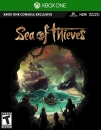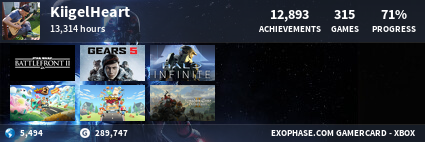Sony is a gaming giant. Its gamer base is two times as large as Xbox's worldwide, and 50% larger in the U.S. (Page 6)
As a game publisher, Sony's in-house developer, PlayStation Studios, is responsible for major hits like God of War, The Last of Us, and Spider-Man, most of which can be played only on PlayStation. As a purchaser of third-party games, Sony pursues exclusivity REDACTED (long two sentences). Sony dwarfs Xbox on exclusives, REDACTED (just a sentence). (Page 7)
By contrast, Xbox's console has consistently ranked third behind PlayStation (first) and Nintendo (second). Xbox has thus pivoted to a different business strategy of making games more accessible. As noted above, Xbox invests heavily in Game Pass. For years, Xbox has tried to get a foothold into mobile gaming, but has had no success REDACTED (four sentences). (Page 7)
Against this backdrop, Xbox and Activision determined that, together, they could significantly improve gaming and increase Xbox's competitiveness. Xbox's vision is to expand choice for gamers and developers by making games more widely accessible on Xbox Game Pass and on mobile devices. A key driver of the merger was Activision's mobile gaming business, which includes popular games like Candy Crush Saga and COD Warzone, a free-to-play variant. (Page 7)
Regulators around the world have been reviewing the transaction ever since. And Microsoft has tried to accommodate any concerns they raised —however speculative those concerns may be. As| noted above, Microsoft has signed a ten-year agreement to bring COD to Nintendo for the first time since 2013. REDACTED. It has offered a similar agreement to Sony that would preserve Sony's access to the game REDACTED it REDACTED but Sony has refused to deal —instead focusing on trying to derail a transaction that would strengthen a rival. Xbox offered a ten-year agreement to keep COD on Valve, the popular PC game platform, but Valve turned down the agreement as unnecessary REDACTED (Page 8)
Separately, Xbox has entered five separate ten-year agreements with cloud gaming providers —Boosteroid, EE, Nvidia, NWare, and Ubitus, —to ensure that all Xbox games, including Activision games, can be played on their services. In addition to those agreements, during the European Commission's regulatory process, Xbox committed to grant streaming rights to Activision games to other cloud gaming services—regardless of whether Xbox ultimately decides to stream those games itself. (Page 8)
As a result of these efforts, al but one foreign regulator to pass on the issue has cleared the transaction. The lone exception is the United Kingdom's CMA. But like the European Commission and other global competition authorities, the CMA rejected the FTC's core theories of harm here, tied to console foreclosure and subscription service foreclosure. Its only objection to the transaction was that it might harm, at some point in the future, the evolution of cloud gaming. Xbox is currently appealing that decision.
(Page 8)
To meet its burden to show a substantial lessening of competition, the FTC first must "define the relevant market" in which anticompetitive effects will occur. Courts determine "[t]he outer boundaries of a product market" based on "the reasonable interchangeability of use or the cross-elasticity of demand between the product itself and substitutes for it." Within a relevant market, "[p]roducts need not be fungible." Rather, the "overarching goal of market definition is to "recognize competition where, in fact, competition exists."" By those metrics, the FTC's proposed markets fail entirely. (Page 10)
The FTC offers two unduly narrow proposed definitions of its "high-performance consoles" market. The FTC primarily proposes that PlayStation and Xbox alone compose the entire console market and then alternatively adds Nintendo Switch but still excludes PCs. Both Nintendo and PCs are "economic substitutes," that must be considered in any relevant market. (Page 11)
There is no basis for excluding Nintendo. REDACTED (four sentences). By excluding Nintendo, the FTC inflates Xbox's market share. It also conveniently excludes a key competitor that has thrived without COD for the past decade. (Page 11)
In response, the FTC offers its expert's ipse dixit that Nintendo's Switch is so differentiated along price, specifications, and content that it is in a different product category than the other two consoles. To the contrary, Xbox and Sony compete with Nintendo and with each other on all of these features. For example, the entry-level versions of the current Xbox and Nintendo consoles are offered at the same price point ($299.99). Moreover, while the FTC makes much of Nintendo"s supposed technical differences from the other consoles, it ignores that Xbox and Sony also differentiate their consoles based on performance. The substantial overlap in the three consoles" content libraries further demonstrates that they compete: any of the most popular games on PlayStation and Xbox consoles are also available on Switch. To the extent there are differences, the FTC fails to show that the difference is the result of Xbox and PlayStation games not being available on Switch, as opposed to the many Switch-exclusive titles (such as Mario and Zelda). (Pages 11-12)
The FTC is likewise wrong to exclude PC gaming, which offers specifications and features comparable to or even greater than those offered by consoles. There is also substantial catalogue overlap: In 2022, al but one of the top 30 Xbox titles and al but three ofthe top 30 PlayStation titles were available on PC. Indeed, even SIE's CEO REDACTED. (Page 12)
A related footnote includes more REDACTED content and this: The only evidence the FTC cites to support its position that PCs "are not commercially reasonable alternatives" is testimony from one Microsoft executive in an unrelated case that "she does not "view the Xbox console as a replacement or substitute for the iPhone or iPad." FTC. But the iPhone and iPad are both mobile devices, not gaming PCs. (Page 12)
Finally, even accepting that Nintendo and PC gaming are differentiated from Xbox and PlayStation in certain ways, including with respect to "price, use and qualities," that does not decide the market definition question. That products are differentiated, even in ways that some customers prefer, "do[es] not negate interchangeability," because the relevant question "is not what solutions the customers would /like or prefer," but instead "what they could do in the event of an anticompetitive price increase." Id. As just explained, the evidence shows that Xbox, PlayStation, Nintendo, and PCs all serve as substitutes and compete.
(Page 12)
Source: Idas
Half done with the highlights from the legal arguments (12 out 24 pages). You can check them here.
I'm excluding all the references to the exhibits and legal precedents quoted to make things easier to read. But if someone wants a specific one, just let me know and I'll included.
I take a break now and I'll finish them later.
Source: Idas
Last edited by Ryuu96 - on 17 June 2023


































































